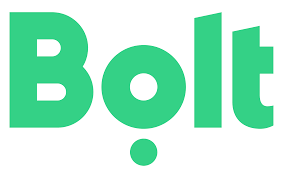Bolt, the leading ride-hailing platform in Africa has introduced electric tricycles in Lagos, with a bold target of deploying 1,000 units by the end of 2025.
The initiative is part of the company’s broader vision to enhance urban mobility, empower drivers, and promote environmental sustainability in Nigeria’s most populous city.
The launch, which took place in Lagos, underscores Bolt’s commitment to offering transport solutions that reflect the economic and infrastructural realities of African cities. By targeting fuel cost reduction and long-term vehicle ownership for drivers, the company hopes to ease the burden of rising operational expenses in the country.
Central to the initiative is a “Lease-to-Own” model developed in partnership with SGX. Through this model, drivers can acquire brand-new electric tricycles without any upfront payment and own them outright after 24 months of consistent service. This model not only supports financial inclusion but also gives drivers more control over their livelihoods.
Drivers under the scheme will operate exclusively within SGX-managed fleets on the Bolt platform and will enjoy flexible lease terms, which vary based on weekly performance.
The electric tricycles also open up a lower-cost category for commuters, making transport more accessible in high-density and underserved areas of Lagos.
Bolt’s regional director of Rides Operations, Africa and International Markets, Caroline Wanjihia, at the launch event in Lagos, on Wednesday, said this initiative will transform how mobility works for the people who power Bolt’s platform, by giving them tools to reduce fuel spending, avoid upfront vehicle costs, and eventually own their tricycles.
“We are putting more control and earning potential directly into their hands. Nigeria, with its vast and dynamic population, is key to our strategy of making mobility economically viable and accessible for everyone,” Wanjihia averred.
The General Manager, Bolt Nigeria, Osi Oguah, added that the launch will address two critical challenges in Nigeria’s transport sector – driver income and commuter access.
“By introducing electric tricycles with flexible, lease-to-own options, we’re helping drivers save money, own their vehicles, and build sustainable livelihoods. At the same time, we’re offering commuters, especially in underserved areas, a more affordable and accessible way to move around their city. We have an ambitious target of having 1,000 electric tricycles by the end of 2025,” Oguah said.
Designed for maneuverability and affordability, the tricycles fill a critical mobility gap in parts of Lagos that are underserved by existing transport infrastructure.
This initiative aligns with Bolt’s goal to ensure inclusive mobility where access to affordable, reliable transport is not limited by location or income level.





